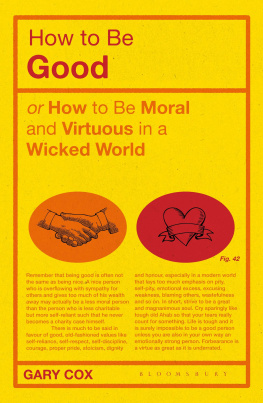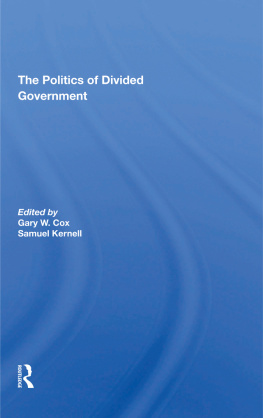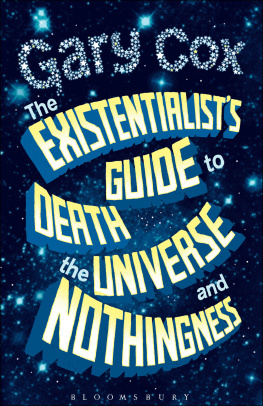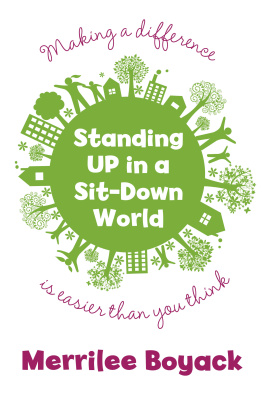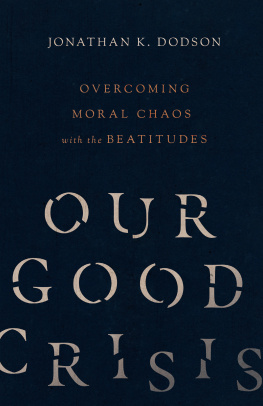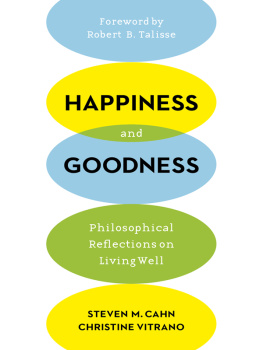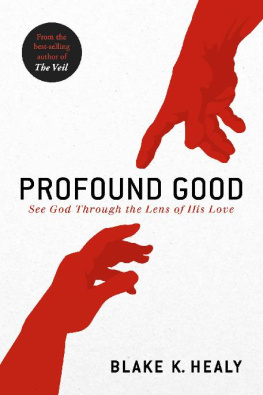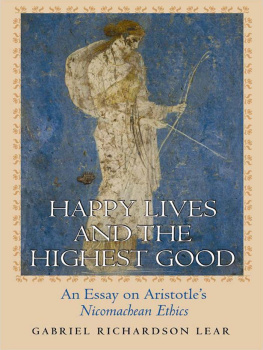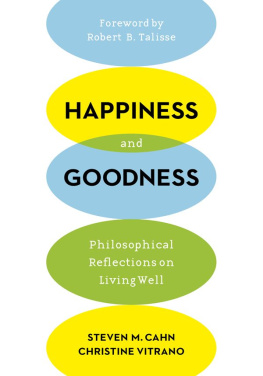
HOW TO BE
GOOD
ALSO AVAILABLE FROM BLOOMSBURY
How to Be an Existentialist: or How to Get Real, Get a Grip and Stop Making Excuses, Gary Cox
How to Be A Philosopher: or How to Be Almost Certain that Almost Nothing Is Certain, Gary Cox
Existentialism and Excess: The Life and Times of Jean-Paul Sartre, Gary Cox
The Existentialists Guide to Death, the Universe and Nothingness, Gary Cox
Cricket Ball, Gary Cox

CONTENTS
Many thanks to moral philosophers I have known personally at the universities of Southampton, Birmingham and Bristol, particularly Professor Nicholas Dent for his rigorous reading of the first draft of this book and his excellent advice on how to improve it. Thanks also to friends and family, particularly Sharon, for their encouragement and support.
There is a belief, particularly within the Roman Catholic Church, that certain rare persons are so full of goodness that when they die their bodies do not rot. They are held to be incorrupt, a sure sign that they are a saint, an exceptionally good and holy person with a hotline to God who will be formally declared a saint (canonized) in due course.
In Fyodor Dostoyevskys epic novel The Brothers Karamazov (1880), the death of the renowned holy man Zosima is expected to be followed by the miracle of his incorruption. Instead, his rotting corpse soon stinks to high heaven. Some take this as a sign that he was not so holy after all, others as a symbol of what he consistently taught, that the body and the physical world are without value, that it is only what belongs to the world of the spirit that matters: kindness, forgiveness, goodness and the love of God.
If you ate a saint would you taste and consume the goodness in him or her, as you are said by wholefood fanatics to taste and consume the goodness in organic vegetables fresh from the garden? Well, I have never tried it the most we have of saints in a physical sense is dry, dusty bones and perhaps a covering of parchment-like flesh that would make a poor soup but it seems highly unlikely that eating a saint is a way of acquiring goodness.
Many people have believed, and some people still believe, that goodness is a quasi-physical property of saints, a property that can be possessed by owning some part of them or some object closely linked to them, some religious relic, like St Peters sandals. But this is silly, superstitious, fetishistic thinking, the belief that certain objects are haunted by magical powers through association.
We only have to ask ourselves in what did the goodness of a certain saint really consist, what was it that made him a saint, apart from the Catholic Church canonizing him? Did he just sit around being good, radiating his goodness out of his halo, glowing all over with an aura of altruism? Even religious people who believe that a saint must have a very good soul within him, brimming over with the God-given glitter of goodness and all that bling, would probably concede that the true goodness of a saint really consists in the way he lived his life, in the good lessons that he taught, in the good deeds that he performed and in the many good ways that he actively helped, encouraged and comforted others.
Goodness, then, is not really a physical property of saints or anyone else, not even a very vaporous one, but a certain way of behaving, a pattern of behaviour, that if it is adopted with sufficient consistency by someone, it can correctly be said of them, of their character, He/she is a good person. Saying they are a good person means they have consistently acted in a certain exemplary manner in the right spirit and for the best purposes and can be expected to continue to do so, not that the blessed light of goodness literally shines out of them.
Thanks to all my talk about saints you will have already realized that I am talking about moral goodness rather than about being good at football or maths. When we think a person is morally good whatever moral goodness is exactly we allow ourselves to say, He is good. When watching Cristiano Ronaldo play football we might also say, He is good, and everyone understands, in context, that we mean he is a good footballer, not that he is a good person, although, of course, Ronaldo may also be a good person.
Anyway, if Ronaldo is a good person, it is not because he is a good footballer, any more than he is a good person because he is a good-looking guy. Psychologists tell us that people often make the mistake of assuming that a person must be morally good because they are good-looking, which kind of takes us back to the mistaken belief that goodness is some sort of physical property.
In Jane Austens psychologically and ethically penetrating novel Sense and Sensibility (1811), Mrs Dashwood and her daughter Marianne, governed as they are by emotion, jump to the conclusion that John Willoughby must be a highly virtuous person simply because he is handsome and dashing. Elinor, Mrs Dashwoods oldest daughter, is wise enough to realize that virtue does not consist in such superficial and transitory qualities. Her suspicions that Willoughby lacks any real moral fibre are eventually proven to be correct when he shows himself to be unreliable, inconsiderate and self-seeking in his treatment of poor, innocent, naive, passionate Marianne, who nearly dies of a broken heart as a result of his selfishness.
The whole of his behaviour, replied Elinor, from the beginning to the end of the affair, has been grounded on selfishness. It was selfishness which first made him sport with your affections; which afterwards, when his own were engaged, made him delay the confession of it, and which finally carried him from Barton. His own enjoyment, or his own ease, was, in every particular, his ruling principle.
Sense and Sensibility, p. 327
Willoughby is somewhat redeemed towards the end of the novel when he reveals with genuine remorse that his actions were driven by mere weakness rather than villainy. But, then, most of the evil in the world stems from mundane human weakness, stupidity and lack of consideration rather than from deeply devilish desires. As Hannah Arendt, a philosopher who narrowly escaped the Nazis is 1941, points out, evil is so often banal. Arendt coined the phrase the banality of evil in her 1963 book Eichmann in Jerusalem: A Report on the Banality of Evil.
Although good looks alone should not be taken as a sign of moral goodness, the ancient Greeks often argued that looking after ones health and appearance to the best of ones ability without succumbing to vanity, and developing and maintaining ones physique so that it is athletic, are all part of achieving personal arte (excellence). Arte for the ancient Greeks referred to excellence of any kind, the excellence of a meal, the excellence of a horse, but it also meant moral virtue. Certainly, the opposite, damaging ones health and appearance through overindulgence or neglect, was considered a vice. This example reveals that goodness is partly to do with how we treat ourselves, even if the greater part of it is to do with how we treat others.
From the outset, it can be said that goodness, morality, ethics has an awful lot to do with our behaviour as it relates to other people, but you already knew that. This book is certainly introducing you to something you very likely already know quite a lot about, even if you have never before thought about your everyday understanding of ethics, your common-sense awareness of right and wrong, in any kind of systematic, analytical, philosophical manner.
Next page
